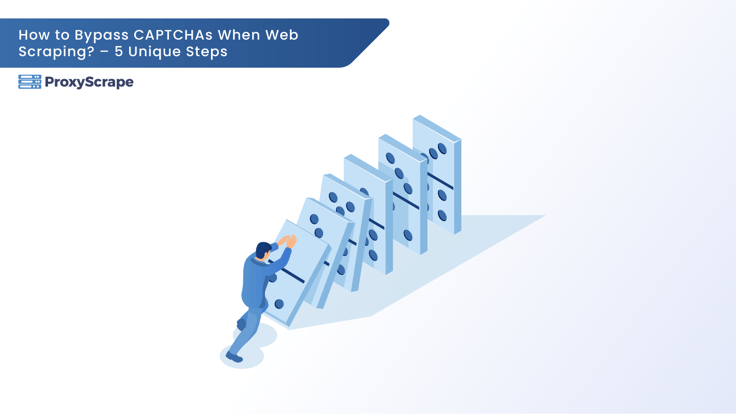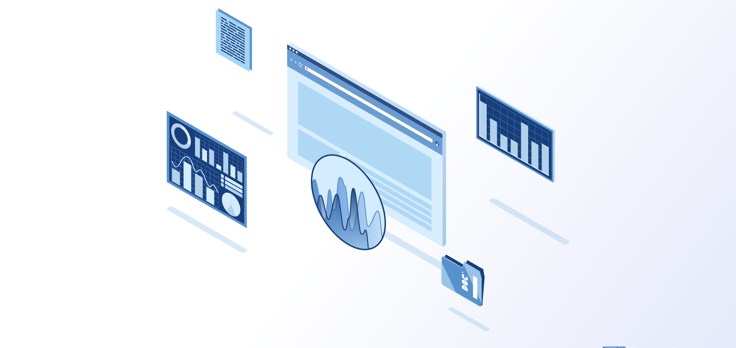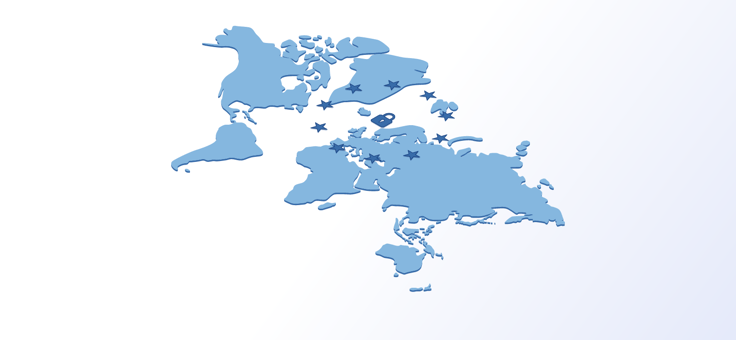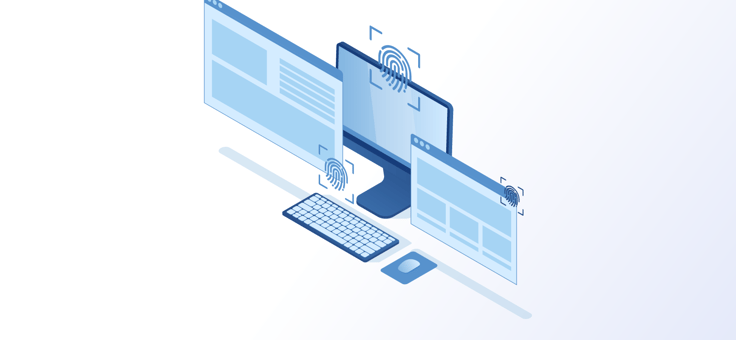What Are The Consequences Of Gathering Web Data Without Proxies?

Have you thought of the consequences of gathering web data without proxies? The internet contains enormous data worth extracting for business organizations, academics, and any other researcher. Whether it’s for making better decisions by companies to stay ahead of their game or for research purposes by academics, there are many ways to extract data ranging
Have you thought of the consequences of gathering web data without proxies? The internet contains enormous data worth extracting for business organizations, academics, and any other researcher. Whether it’s for making better decisions by companies to stay ahead of their game or for research purposes by academics, there are many ways to extract data ranging from manual to automatic.
Obviously, given the wealth of data the internet possesses, the automatic method would be the preferred data extraction method among researchers. However, it is worth investing time on whether you need a proxy along with automated extraction methods such as web scraping.
Firstly, we’ll look at the scenarios and data types that researchers frequently use for data extraction on the web.
What are the prominent use cases of web data extraction?
There are various use cases for data extraction, also known as web scraping, that we may categorize as follows:

1. Pricing Monitoring
If you’re in the E-commerce industry, you may collect price data of your competitors to determine the best pricing strategy that suits your organization. You may also extract price data from stock markets for data analysis.
2. Lead generation
Recent research by Ringlead statistics has shown that 85% of the B2B marketers state that lead generation is their most vital armory of content marketing. So to reach out to your potential customers, you would be reaching out to the web without a doubt.
To get qualified leads, you would need information such as the company’s name, email address, contact number, street address, etc. Such information would be redundant in social media such as LinkedIn and featured articles.
3. Recruitment
Like lead generation, companies often search for them on social media platforms when recruiting potential employees. Online recruitment has grown significantly since the pandemic as people started working remotely.
Another option is extracting data from online job boards. Some of the digital job agencies also scrape job boards to keep their employment databases up to date.
4. News aggregation
Most online news aggregation websites use web scraping to extract news content from various news-relevant websites. The scrapper or the scroller fetches the data from the RSS feeds of the stored URLs.
5. E-commerce data
E-commerce data are in high demand for extraction by E-commerce agencies. According to recent research, 48% of web scrapers scrape E-commerce data.
Some of these E-commerce data include the price data of competitors that we have already discussed above and product and customer data.
Customer data can be statistics and figures related to demographics, buying patterns, behaviors, and search queries in search engines. At the same time, the product data includes stock availability, prominent vendors for a particular product, and their ratings.
6. Bank account aggregation
Many financial institutions such as banks offer their customers the ability to integrate data from all their banking accounts and all the financial institutions they carry out transactions with. Then you can use web scrapers to scrape your transaction information about your bank accounts and download them into a format that you can easily comprehend.
7. Datasets needed for research
There is a plethora of information available on the internet for academic research from publically available sources. If the author makes the content publicly available, these sources include forums, social media websites, blog posts, and research websites like ResearchGate.
What is the primary challenge that web scraping tools confront?
The scenarios shown above are just a few examples of the data types that researchers may extract based on their needs. As you can see, the web includes a massive quantity of data that would be hard to acquire manually.
If a website provides an API (Application Programming Interface), it is easier to extract data. But unfortunately, not every website offers an API. On the other hand, a significant drawback of an API is it doesn’t provide access to every piece of information. Therefore you would undoubtedly require extraction tools such as web scraper bots to gather such information.
Here are some of the challenges you’ll confront when you use a bot.
Disallow bots to access
First of all, you must read the robot.txt file that specifies which web pages of the target website that you plan to scrape allows.
So even if you have read the robot.txt file, a primary concern with most websites that you would target to scrape is that they do not allow bots to access their content. They serve content to users from actual web browsers. However, you would have to extract content manually when using real browsers on computers or mobile devices, which would be overwhelming.
Also, some information on the web, such as price data, gets updated frequently. So you would not end up having to depend on outdated data when you scrape manually.
So the ultimate solution would be to emulate real humans scraping websites and proxies.
The following section will outline the significant risks of scraping data without proxies and what you will be missing out on.
What would you be missing out on without using proxies?
Geo-restricted content
If you are not from the region or country where the website is hosted, you may not view content. The host website can determine your location based on your IP address. As a result, you’ll need to connect to an IP address from the website’s country/region in order to view the data.

You’re most likely to get around this problem by utilizing a proxy server from a nation or area where access to the material is restricted. The geo-restricted material would after that be available to you.
Scraping data from websites without utilizing a proxy is unquestionably unsafe. You’ll need to rely on many data sources from all across the world for your study.
You would not be able to bypass limits set by the target website
The target website frequently limits the number of queries a scraper tool may send to it in a given length of time. As a result, if the target detects an endless number of requests from your IP address, the target website will blacklist you. For example, sending hundreds of scraping requests in 10 minutes is a good illustration of such a scenario.
So the absence of a proxy server, you will miss the opportunity of the proxy server distributing your requests amongst many proxies. This is known as proxy rotation. This makes it appear that requests came from several users rather than a single person to the target source. As a consequence, the target sites won’t raise any alarms.
Miss the opportunity to rotate user agents
Most web servers of websites inspect the header of the HTTP request when you visit a website. The same applies when a crawling bot access a website. The HTTP header is the user-agent string, which contains the browser version, operating system version, compatibility, and other details about your device.
For example, when you’re scraping a website through a bot, the target website can detect that inhuman activity is going by accessing the HTTP header information.
When you use rotating proxies, you can rotate user agents as well. So it would appear to the target website as requests emerge from various IPs with different user-agents.
You may find further information about user agents in this article.
Inability to avoid browser fingerprints
The browser creates a unique fingerprint with information about your device whenever you visit a website. Browsers use this information to provide you with a unique user experience.

So when you scrape data through a scraping bot, the target website would identify your activities as not human. You can use rotating proxies with user-agent spoofing to circumvent such a scenario.
Since there are so many variables in a single device, you could easily manipulate the system information and make you appear human. However, without proxies, this is quite impossible.
For more information, you may refer to what is a browser fingerprint and how to avoid it?
Inability to shield you from malicious attacks
When you carry out any online activity, your IP address will be visible to the public internet. Then you will be highly vulnerable to prominent Cyber attacks such as DDOS (Distributed Denial Of Service) attacks and theft of sensitive, confidential data. They could download illegal content using an IP address.
You would be able to mitigate such risks using proxies as they mask your IP address.
Overcome anti-botting mechanisms
You may encounter anti-botting mechanisms such as captchas during the web scraping process when you send too many requests simultaneously to the target website using the same IP address.
You can entirely bypass such captchas when you use rotating residential proxies to rotate with different IP addresses. Then it would appear to the target website as different users are sending requests, thereby avoiding captchas.
To find further information on How to Bypass CAPTCHAs When Web Scraping, you may refer to that article.
Unable to leverage headless browsers
Another critical asset that mimics human behavior is the use of headless browsers. The headless browser has the functionalities of every other browser except that they do not have a GUI.
One of the prominent reasons for using headless browsers is that certain content is buried inside JavaScript.But with headless browsers, you could extract them with ease.
However, you would not reap the rewards of headless browsers without using proxies.
This is because even when you use a headless browser to scrape data from some of the target websites that are difficult to extract data from, it is more likely to block you as you are emerging from the same IP address.
Therefore you can create many instances of headless browsers for scraping data with rotating proxies.
Are there any alternatives to using proxies?
As you can see in this article, by not using proxies, you often risk getting blocked by target websites that may also impose rate limits with the inability to access geo-restricted content. Before we conclude, let’s look at any alternatives to using proxies.
Virtual Private Networks (VPNs)
Like proxies, VPNs also allow you to mask your identity to access the internet anonymously. It operates by rerouting all your traffic, whether it emerges from a web browser or an application installed on your operating system through a remote server. In the process, it masks your IP address and encrypts all your traffic.
However, most VPN traffic can be prolonged due to the encryption procedure. Unlike proxies, VPNs are incompetent in carrying out scraping projects at a mass scale. Thus there are merely ideal for those who wish to browse the internet anonymously and those needing to access geo-restricted content.
Conclusion
At this stage, you may have a comprehensive overview of why it is essential to have proxies to extract web data. Without proxies, the amount of data that you would be able to scrape is relatively minimal. You will scrape less data with your IP address and bots at best.
However, to extract comprehensive data required for your research, proxies are your only savior.